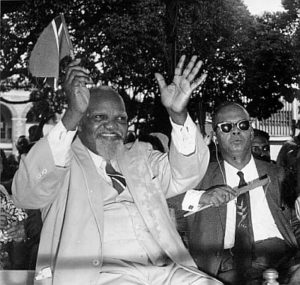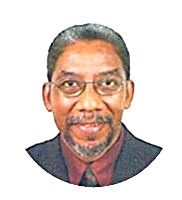|
Getting your Trinity Audio player ready...
|
Reading Time 5 mins
August 31, 2022
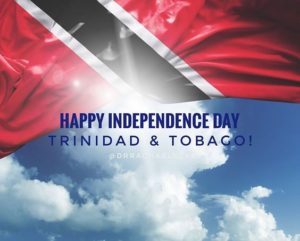 For those of us who were there in those days, whether young or old, involved in the major events of the time or just touched by their atmosphere or influence, there was no escaping the engulfing mood of expectancy and hope that pervaded the entire society.
For those of us who were there in those days, whether young or old, involved in the major events of the time or just touched by their atmosphere or influence, there was no escaping the engulfing mood of expectancy and hope that pervaded the entire society.
As on other moments of historical importance, once you were alive on August 31, 1962, you remember where you were at one minute past midnight that night of August 30, past the ringing of the midnight bell at the Anglican Cathedral just across the road from the Red House when the Union Jack was lowered for the last time, and the Red, White, and Black of our newly Independent nation was hoisted.
“With all the symbols of a newly-independent country – national flag, coat of arms and anthem, the streets of Port of Spain adorned with decorations and bunting and the singing of ‘nation-building’ songs, ‘our nation was born.’“
This was the culmination of a journey and conflagration of circumstances, global and local.
We were part of the phenomenon of the dismantling of Empires and the massive decolonisation movement of the peoples of Africa, Asia and Latin America, and the Caribbean. This was all largely influenced by ‘Ten Days That Shook The World’ with the Russian Revolution.
“The successes of Indian Independence (1947), the Chinese Revolution (1949), the defeat of the French at Dien Bien Phu in Viet Nam (1955), the convening of the Bandung Conference (1955) involving 29 newly independent Asian and African countries, the Cuban Revolution (1959), the establishment of the Non-Aligned Movement (1961) – all of these provided more encouragement for countries seeking Independence and accelerated the demise of the British and other European Empires.
The emergence of the Cold War and superpower rivalry for world hegemony was also a factor in the context of the situation as August 31, 1962, approached. It was a complex historical moment, with both positive and negative aspects.
Internally, there was a period we may call the Struggle For Independence – 1937-1962. This period began with the anti-colonial uprising popularly known as the Butler Riots. “It was both an economic and political battle which challenged the very foundations of the colonial imposition of the British Empire. Inscribed on its banner were two vital slogans – Let Those Who Labour Hold the Reins and the demand for Home Rule (the call for self-determination).”
Here are some of the mileposts:
- 1937 – 1939 – the ButlerRiots and the legalisation of modern trade unions;
- 1939 – 1945 – devastating World War, the defeat of the Axis powers, strengthening of US global power, expansion of the Soviet Union, and the emergence of the Decolonisation Period;
- The major boom in the local oil industry was based on the importance of supply to the British US war efforts;
- 1946 – first elections under universal suffrage and the emergence of political groupings claiming to represent labour with 46% of the population registered to vote;
- 1946 onward – the resumption of trade union organisation and industrial action starting with the release of union leaders from detention after the War;
- 1947 – ConstitutionReform recommendations for an elected majority in the Colonial structures of Governance; the emergence of even more political parties and independent candidates;
- 1950 Elections with 18 seats contested. Although Butler’s party became the largest single group in the legislature, they were excluded from the Executive Council, and the colonial authorities put Albert Gomes in charge;
- 1955 – 62 the rise of the PNM with its first election victory with 39% of the vote in 1956, forming a government with the First Chief Minister; the PDP (later DLP) won 20% of the vote;
- 1958 – the Federal Elections in which the new DLP won six of the ten seats was a coalition of 3 parties. The DLP;
- 1961 – Elections involve open racial tension, violence, and a State of Emergency. The outcome – PNM won 20 seats and DLP 10 – marking the establishment of the two-party system;
- 1955 – 61 Economic growth of 8-10% per annum in the six years leading to 1961 declined to 1% in 1962 as world oil prices plunged.
- 1960 – major strike in the oil industry and demand for nationalization of the industry.
On a wider scale, there was a popular literary and debating resurgence building upon the literary advances of the 1930s and 40s from the 1950s and into Independence in 1962 “with writers like Ralph de Boissiere, Samuel Selvon, V.S. Naipaul, Michael Anthony, and Earl Lovelace.
Errol Hill campaigned for a national theatre and Beryl McBurnie the Little Carib Theatre. The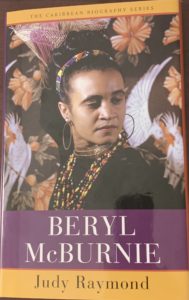 literary and debating clubs also enjoyed
literary and debating clubs also enjoyed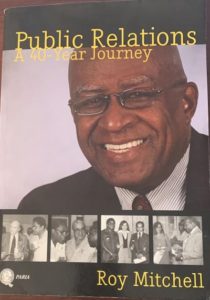
a revival and resurgence in this period. As Roy Mitchell put it, “There were literary and debating clubs. They were used by young people with ambition to debate serious issues. Youth went all over the country by bus to debates” “In 1962-64, they operated as debating clubs and youth movements.” Among the debating clubs were Molton Hall Literary and Debating Club in Port of Spain. In San Juan/Barataria, there were clubs like Barawan, Arawaks, and Saturn, led by Hugh Eastman and John Scott.
There were the San Juan Youth Movement and the Progressive Youth Movement in San Juan. They were led by Ramesh Deosaran and Kissoon Birsingh. Politics was organised in the youth arms of various political movements. The Trinidad Labour Party had its youth arm, and Nello Mitchell was its president for several years. The POPPG, the Caribbean Socialist Party (CSP), and Liberal Party also had their youth arms.
PUBLIC EDUCATION
New newspapers and pamphlets published by individuals like George Bowrin and Walter Annamuntudo provide a further avenue for popular literature and expression among the population. The 1950s also saw the emergence of public political education in the form of public lectures by Dr. Eric Williams, CLR James, and others. Public debating among leading figures on national issues also commanded public attention, like the famous Eric Williams-Dom Basil Mathews debate on education.
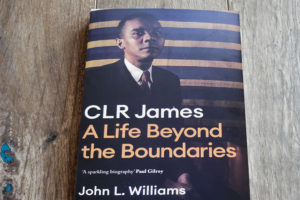 It is out of this wave of literary endeavour in all its breadth and as its continuation that being connected with the Literary and Cultural Club coincidentally named Beacon, established by Geddes Granger, yet another form of organisation emerged. It was founded in 1962, the year of Independence. Its name was Pegasus.1
It is out of this wave of literary endeavour in all its breadth and as its continuation that being connected with the Literary and Cultural Club coincidentally named Beacon, established by Geddes Granger, yet another form of organisation emerged. It was founded in 1962, the year of Independence. Its name was Pegasus.1
“In an interesting column in the Sunday Express, Selwyn Ryan suggested that Geddes Granger (Makandal Daaga) was the real “father” of our system of national awards because his organisation, Pegasus, took the initiative in honouring outstanding citizens in the 1960’s”.2 In 1962, Pegasus began honouring cultural and literary and artistic contributors at Independence Day activities which evolved into its Parade of National Heroes and National Hero Awards in 1967. The first awardees were Arthur McShine, founder of the ‘Penny Bank’ and Captain Arthur Cipriani, Leader of the Trinidad Workingman’s Association and the Trinidad Labour Party.
From the start celebrating our Independence has been a celebration of the struggles that we have waged, as a people, for our freedom from the clutches of colonial Crown Colony domination and those who have contributed in various fields of activity to the achievements of our country’s embarking on the road of self-determination and the flourishing of a new cultural identity and the possibility of forging the national personality.
Citizen and Advocate for Democratic Renewal of our Society and Governance.
- Weatherhead, Clyde, Pegasus and the Making of Project Independence, 2020, ISBN9798647268457, pp 8-10 [↩]
- Brereton, Bridget, History Matters – Selected Newspaper Columns, 2011-2021, 2022, ISBN9789768244475, p 5 [↩]

